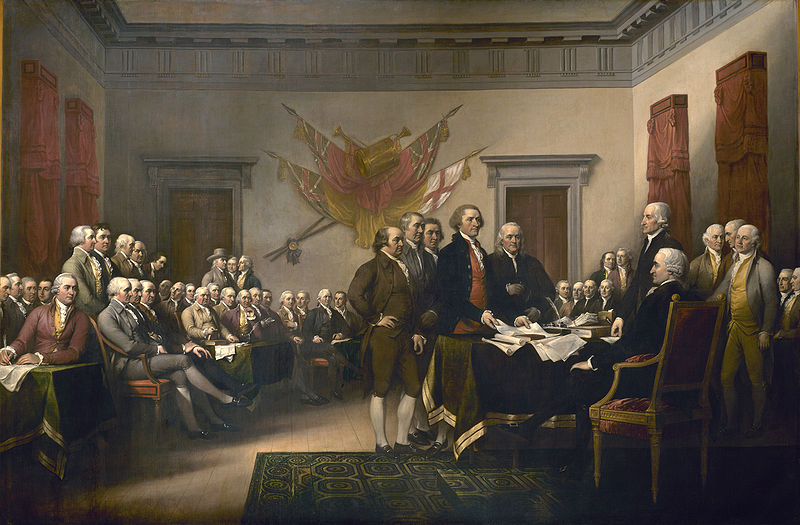How the Constitution Shapes Equality and Inequality in America in 2021
Law professors Kim Forde-Mazrui and Michele Gilman say what the Constitution lacks in equality should be made up for in other branches of government and private action.

The WDET Book Club is reading the U.S. Constitution this summer to understand how it still shapes our lives today, more than two centuries after its inception. Professors Kim Forde-Mazuri and Michele Gilman discuss the idea of equality in the Constitution from a modern-day perspective, and how there is still a long way to go until all Americans are truly equal.
“It’s an ongoing fight and struggle … the founders didn’t have an inclusive view of equality, but we can.” –Michele Gilman, University of Baltimore School of Law
Listen: Two law professors on the paradox of equality in the Constitution.
Guests
Kim Forde-Mazrui is a professor at the University of Virginia Law School. He says the Constitution is not wholly responsible for shaping America’s landscape of equality. “We tend to focus on Supreme Court decisions because those decisions tend to place certain limits on what the other branches of government can do. The Supreme Court has evolved over time both in the text of the Constitution and their interpretation.” Mazrui says equality purely based on Constitutional amendments is unlikely to take shape. “I don’t think we’ll ever have perfect [constitutional equality] … we are all subject to the culture of our time and we still believe as a society there are certain people who are harmful or immoral or a threat … we are continuing to always struggle to draw that line between who gets included and who does not.”
Mazrui says Constitutional distinction based on race or gender is not necessarily a bad thing, as long as it doesn’t justify discrimination. “A key change the court made … is a move toward prohibiting the government from making distinctions based on race … and in large part that’s a good thing … I think unfortunately the court has gone too far in mandating color blindness.” He says in the law, it’s necessary to take into account the historic inequities faced by people of color, rather than this idea of court “color blindness.” “Once you’ve had centuries of systematic oppression and then simply stopping discrimination doesn’t correct for the economic realities that have happened because of that oppression.”
“Once you’ve had centuries of systematic oppression and then simply stopping discrimination doesn’t correct for the economic realities that have happened because of that oppression.” –Kim Forde-Mazrui, University of Virginia Law School
Michele Gilman is a professor at the University of Baltimore School of Law. She says the Constitution was designed to overcome its flaws. “One thing the framers did well was to have the foresight to know that things change over time and they did provide for ways our constitution could be amended.” Gilman says though the Constitution can be revised, that alone won’t lead to equality in America. “We’re about to celebrate the 101-year anniversary of the 19th Amendment … we still have a long way to go. A constitutional amendment on its own … doesn’t do all the heavy lifting and so today when we think about what it means to have full gender equality, we are not there yet.”
Gilman says other facets of American government, and the private sector, must influence gender equality. “The Constitution is a living document and a lot of the meaning we ascribe to it is the meaning Supreme Court justices have given to it … we cannot expect the Constitution to solve all these problems. It protects us against government overreach … but it doesn’t get to private action.” Gilman says formal equality as stated in the Constitution doesn’t do the work we need to have a more substantive definition as a society. “It’s an ongoing fight and struggle … the founders didn’t have an inclusive view of equality, but we can.”
Join WDET in reading the Constitution.
This summer, we invite you to get involved as we explore our nation’s founding document.
Sign up to get your free pocket Constitution
Trusted, accurate, up-to-date.
WDET strives to make our journalism accessible to everyone. As a public media institution, we maintain our journalistic integrity through independent support from readers like you. If you value WDET as your source of news, music and conversation, please make a gift today.
